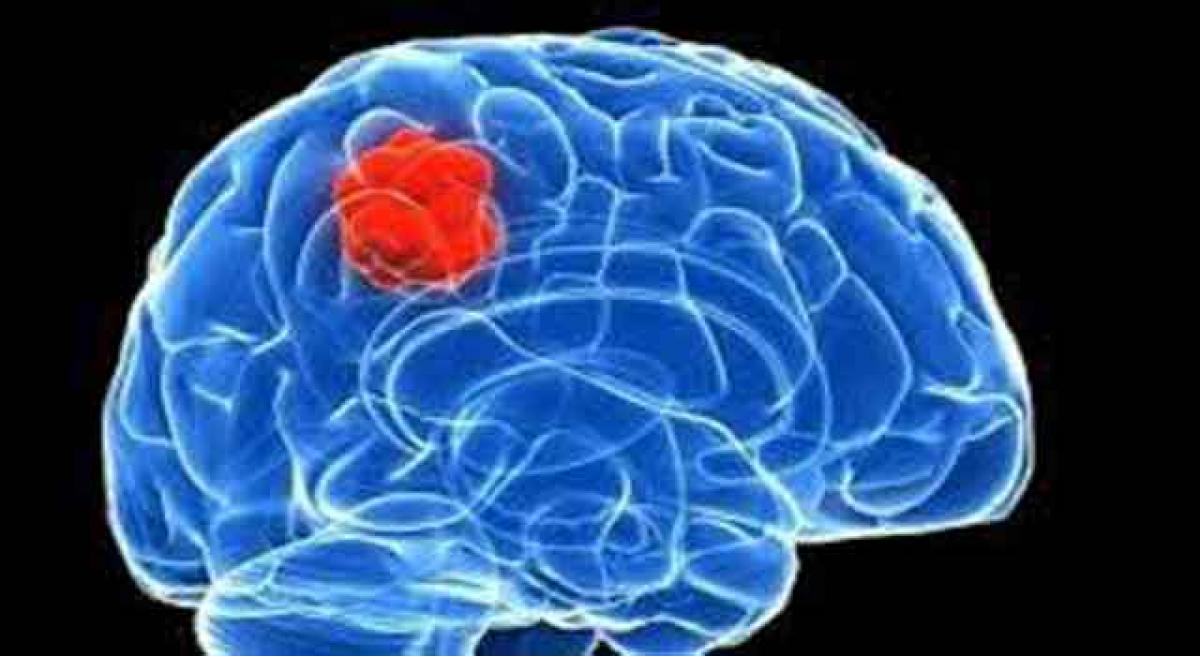Live
- Are strict laws needed to ensure MLAs attend Assembly sessions?
- Do you support caste census? which one will you prefer caste census or skill census?
- Maha people gave big victory to Mahayuti led by BJP: Kishan
- Don’t rush to cover up harvested grain
- Ensure participation of all farmers in conference: CM
- Public uprising against Cong govt imminent : Bandi Sanjay
- SP conducts surprise inspection of Srikalahasti PS
- Antimicrobial resistance awareness programmes held
- BJP celebrates victory in Maharashtra Assembly polls
- BJP gets shot in the arm ahead of Delhi polls
Just In

Brain tumor – the mere utterance of this word creates ripples in the body and you may feel scared, insecure and angry about this condition. This is mostly due to the myths associated with brain tumors. You don’t have to worry anymore as the information given below is an attempt to empower you with the real facts about brain tumors – just read on to unravel the myths and know the facts.
Brain tumor – the mere utterance of this word creates ripples in the body and you may feel scared, insecure and angry about this condition. This is mostly due to the myths associated with brain tumors. You don’t have to worry anymore as the information given below is an attempt to empower you with the real facts about brain tumors – just read on to unravel the myths and know the facts.
Myth1: Brain tumors are very rare
Fact: Brain tumors are not very rare, but are relatively infrequent. Only a few persons reach a proper healthcare facility and seek treatment. In the past it was felt that brain tumors were rare owing to lack of good technology and facilities – to diagnose and detect them. But now due to the advent of CT scan and MRI – it is now quite easy to detect brain tumors.
Myth2: Non-malignant brain tumors are not very serious
Fact: It is not true that all non-malignant brain tumors are not very serious because the seriousness of the brain tumor depends on the part of the brain in which it is located, and its accessibility for total surgical removal. If non-malignant tumor is located in an inaccessible area of the brain from where it cannot be removed surgically, then it is as bad or worst as a malignant tumor elsewhere in the brain – from where it can be removed completely.
Myth3: Lifestyle modification can help prevent brain tumors
Fact: Lifestyle modifications cannot prevent brain tumors, but they are good for other types of health concerns and are good for overall health and well being of an individual. Regular exercise, proper diet and avoiding the intake of toxic substances are good for health.
Myth4: All brain tumor patients have the same symptoms
Fact: No. All brain tumor patients do not have the same symptoms, though there might be some common symptoms as well; brain tumors in general expand inside the head and raise the pressure inside the skull which cannot expand in size to accommodate new growth as usually happens with other tumors elsewhere in the body. Therefore, the symptoms include headache, giddiness and vomiting. The other symptoms that depend on the location of the tumor include seizures, weakness, loss of vision or hearing, speech and loss of balance.
Myth5: Radiations from cell phones can cause brain tumors
Fact: Excessive radiation exposure is known to induce tumors including brain tumors – for instance – X-rays, ionizing radiations and atomic radiations, etc. Though there has been a long debate about the usage of cell phones and their radiation causing brain tumors, yet there is no conclusive evidence so far to substantiate such notion.
Myth6: Young people don’t get brain tumors
Fact: No, age is not a criterion for brain tumors because even the newborns can have brain tumors; however, in the extreme of age, brain tumors become more malignant.
Myth7: Once treated, brain tumors do not develop again
Fact: This is not true. Benign tumors, if removed by surgery, rarely develop again barring a few cases wherein they may recur even after 10 to 15 years. However, after surgery, regular follow ups with the surgeon are necessary to rule out the reoccurrence of brain tumors.
Early diagnosis and prompt treatment ensures better outcome. Owing to the advances in diagnosis and treatment even the most malignant brain tumor patients are able to survive and live for many years without experiencing even a trace of tumor years after surgery – which is good news for all.
By: Dr. MRC Naidu MBBS, DNB (Neuro Surgery), M Ch (Neuro Surgery)Neurosurgeon
Continental Hospitals www.continentalhospitals.com
7799661661

© 2024 Hyderabad Media House Limited/The Hans India. All rights reserved. Powered by hocalwire.com







